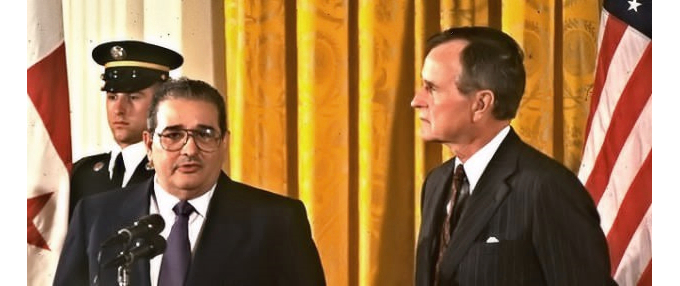
Changes in the political system
by Marco A. Gandásegui, hijo
What happens in the transition between the expired system and the consolidation of the new system?
Panamanian society is asking for a change of the political system. We can say that the same thing is happening on the world level. That includes countries with supposedly solid institutions — like the United States — going through a moment when systemic political changes are the order of the day.
Political systems are always changing. They adjust to accommodate the changes in social relations, in ways to produce and distribute wealth. When they can’t adjust they are transformed. So what happens in the transition between the expired system and the consolidation of the new system?
In Panama’s case, in the middle of the 20th century the political system passed through significant changes at two moments. First, the 1968 military coup transformed the political order, recognized the news social reality and consolidated an economy in which it tried to regulate relations among the producers. The new order followed the pattern recommended by the UN’s Economic Commission for Latin America and the Caribbean (CEPAL), which promoted economic growth based on “import substitution.” It created a model with a strong dose of planning.
It was not a novel model, as it has been applied in most countries. In Panama the notions of a “new order” (regulation) and planning met very strong opposition from the conservative sectors — the financiers and speculators — who were counting on the grand caudillo, Arnulfo Arias. This politician was not really to the taste of the ruling classes — the oligarchy — but they knew that he was sure to win any electoral contest. The conflict between the liberals and conservatives was resolved in 1968 by the military coup that introduced a “change of the political system.”
The liberals and their allies, who had been marching propped up by the bayonets of the Guardia Nacional, failed at the consolidation of a new political system. Under the leadership of General Omar Torrijos, the people recovered full sovereignty over the territory of the Canal Zone. However, the nation could not consolidate a new political system due to the contradictions among the popular forces, the inflexible opposition of the conservatives, and also US intervention. The two elections convened by the military — so that bourgeois factions could compete for governmental power — failed.
Again, the end of the 80s produced what could be called a “catastrophic tie” on the political field. Despite Torrijos’s accomplishment, his successors could not politically capitalize them. Morever, the United States now promoted a new development model that discarded planning and favored neoliberal deregulation. To dismantle Noriega’s military experiment Washington — Bush Sr. — opted for an armed US invasion. The United States changed the political system and within a few years installed a new regime that deregulated the economy, privatized the state sector and made the worker-employer relationship flexible.
Despite the full incorporation of the transit economy — the Panama Canal — into the formation of wealth at the start of this century, the elevated GDP growth rates and the apparent success of the electoral games, the political system has not been able to consolidate itself. The system enjoys no credibility, it projects no confidence and has reached intolerable levels of corruption. All social sectors talk about and have begun to demand a political “system change.” Is Panama at the threshold of a change similar to the ones that were already experienced in 1968 or 1989?
All of the elements that justify change are present. We have the corruption, the bankruptcy of the productive sector and the consolidation of power in an oligarchy of rentiers. What we lack is the actor that was present in 1968 (the liberals and their armed element) and in 1989 (conservatives and the armed element of the US Southern Command). Worse yet, there isn’t an actor — a social class, a social group or a political party — with a renovation proposal or a project for the country.
Lacking little for the 2019 electoral tournament, there is boredom in many social sectors. They think it’s going to be more of the same. One social sector raises as its flag an originating constituent assembly. It is known that the person who calls the Constituent Assembly orients it according to their own interests. There are three possibilities. The first is that the government (including the opposition parties) summon it: again more of the same. The second, a fracture in the system that allows new sectors to compete for the domination of the assembly. The third is that a collapse of the government will allow sectors that are now unknown to take the lead and turn a Constituent Assembly into the prelude to a change in the political system.












